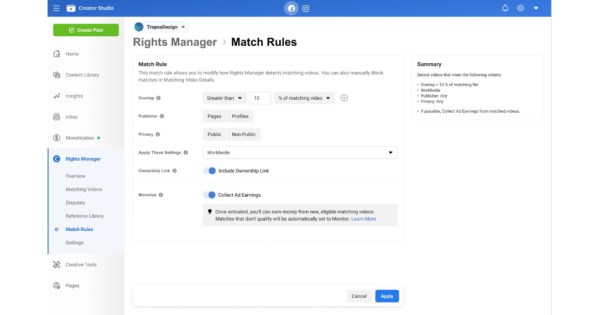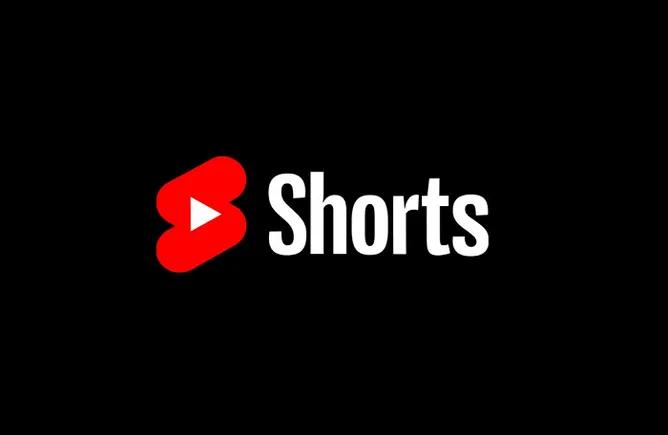When it comes to cashing out Bitcoin, there is no one-size-fits-all approach. Your personal best method for selling BTC will depend on the amount you want to withdraw, your preferred payout method, country of residence and even risk tolerance. In this article, I will overview the best ways to sell small and large amounts of Bitcoin across the globe.
How To Sell Large Amounts of BTC? Best Ways to Sell Bitcoin
The question is, how do you sell Bitcoin without giving up too much in terms of fees or facing potential security risks?
If you want to cash out Bitcoin, you have 5 primary options: a cryptocurrency exchange, an OTC brokerage, peer-to-peer exchanges, Bitcoin ATMs, and crypto gift cards. These are the most commonly used, and ultimately, the best ways to cash out Bitcoin will depend on your specific needs and circumstances.
Centralized Crypto Exchanges: Where to Sell Bitcoin
The most obvious choice for trading cryptocurrencies may seem to be one of the well-known centralized exchanges like Binance, Huobi, Kraken, etc. They have been around for a while and have made a name for themselves as a safe and dependable option for investors and traders. They often accept a wide range of digital assets, can provide fast (often less than one business day) responses in cases you have any issues, and their transaction fees are consistent with industry standards.
Some CEXs also have their own exchange wallets – although it is usually advised against to store crypto in them, it can be a convenient option for selling large amounts of Bitcoin. By keeping your Bitcoin on the exchange, you can quickly execute trades without the need to transfer your funds to an external wallet. However, it’s important to note that this convenience comes with risks.
One thing to keep in mind when selling Bitcoin on popular exchanges is that you will generally need to go through identity verification, know-your-customer (KYC) and anti-money laundering (AML) processes before you will be allowed to withdraw fiat currency on such platforms. This means that you will need to provide some personal information, such as your name and address. While this may not be ideal for everyone, it does offer a higher degree of security than selling Bitcoin directly to another person.
Here’s the list of popular centralized exchanges that can help you with selling crypto.
Binance
The maximum amount of cryptocurrency funds that can be withdrawn from the Binance account is subject to two restriction degrees. Level 1 accounts are limited to a 24-hour withdrawal limit of 2 BTC. Verified accounts are at Level 2 and have a daily withdrawal limit of 100 BTC. You can withdraw your Bitcoin from Binance using a credit or a wire transfer.
KuCoin
KuCoin is another exchange where you can sell your Bitcoins. Unverified and KYC1 level customers are only permitted to withdraw up to 5 BTC daily, whereas fully verified KYC2 level users are permitted to withdraw 200–3000 BTC daily.
Another pro of choosing KuCoin is low fees: when you withdraw BTC, KuCoin assesses a withdrawal fee of 0.0004 BTC — less than the industry standard.
Coinbase
It is always preferable and more affordable to use Coinbase Pro for deposits and withdrawals when dealing with Coinbase. For Coinbase Pro account holders, there’s a daily withdrawal cap, too — $50,000.
BitPanda
This platform enables you to trade using a variety of fiat currencies, including the euro, the US dollar, the Swiss franc, and the British pound. Similar to other exchanges, Bitpanda permits up to €5 million (with the SEPA method) or €100,000 (with online payments) in withdrawals each day, depending on your verification status and preferred payment method.
Kraken
The majority of bitcoin-to-euro transactions are handled by Kraken.
Changelly
Changelly has one of the best rates in the industry. The platform also offers you the highest security standards and a 24/7 client support center.
Others
Cex.io and Gemini are some of the other popular crypto exchanges you may consider.
Modern online exchanges are convenient and user-friendly. However, small and midsize investors and dealers make up the bulk of these platforms’ target market. That’s why it will take one to five days for the money to arrive in your bank account.
After selling your BTC on a cryptocurrency exchange, a common approach to convert Bitcoin into cash is to withdraw funds to a bank account using a wire transfer or an automated clearing house (ACH) transfer.
As an alternative, money can be transmitted using SEPA, the Single Euro Payments Area, which facilitates euro payments and helps increase the effectiveness of international transfers between EU countries. This method of transfer is accepted by some European Bitcoin exchanges.
Peer-to-Peer: How Can I Withdraw My Bitcoins on a P2P Basis?
Sales on a peer-to-peer basis allow you to partially circumvent the traditional banking system by accepting cash payments, using PayPal or different payment methods, or settling the transaction with goods or services. You can buy Bitcoins directly from someone you know who wants to sell it. Alternatively, a variety of platforms serve as matchmaking services, acting as intermediaries between buyers and sellers and vice versa. Then, peer-to-peer exchange negotiations between digital asset buyers and sellers follow.
OTC Brokers
If you’re interested in buying Bitcoin but don’t want to go through the hassle of setting up a digital Bitcoin wallet address, you may be considering using an over-the-counter (OTC) Bitcoin broker.
OTC refers to businesses or people working with cryptocurrency withdrawals and transactions outside of trading platforms. OTC brokers offer a convenient way to buy and sell Bitcoin without inflicting worries about security upon users.
However, there are a few things you should keep in mind before turning to an OTC broker. First, make sure that the broker is reputable and has a good track record. There have been cases of fraud when brokers took advantage of unsuspecting investors. Second, be aware of the fees charged by the broker. Some brokers charge high commissions, so it’s important to compare rates before making a decision. Finally, remember that OTC brokers are not regulated by any government agency, so there is no guarantee that your investments will be safe.
Despite these risks, OTC brokers can be a convenient way to buy and sell Bitcoin, especially for new investors and cryptocurrency users who are not comfortable with the technology involved in digital wallets. Additionally, using OTC exchanges is one of the few (if not the only) anonymous and legal ways to cash out your BTC.
Kraken
One of the most well-known centralized exchanges, Kraken, features a desk with OTC services specifically designed for massive asset withdrawals.
P2P Platforms
Paxful
Two of the most well-known platforms of this kind are LocalBitcoins (this one supports only Bitcoin) and Paxful. While they were once anonymous, they now also demand a thorough KYC. If your selling bid is accepted, you can use this technique to sell a lot.
You can exchange digital currency valued at hundreds of dollars or even thousands of dollars using a peer-to-peer marketplace. However, peer-to-peer platforms also have extremely low transactional restrictions. Additionally, their transaction costs are exceedingly hefty. This might consume a sizable portion of one’s transaction, no matter whether one is exchanging Bitcoin worth millions of dollars or way less.
Back-Alley Trading
This is not the ideal way to cash out your Bitcoins, even if you want to avoid fees and evade taxes. Back-alley dealing draws dishonest traders and unregistered vendors who put your crypto assets in danger. To cash out on your coins, you might want to think about the other options listed above.
DEXs
Cryptocurrencies are often traded on decentralized exchanges, which are exchanges that allow direct peer-to-peer exchanges of crypto assets. Decentralized exchanges are different from traditional crypto exchanges in that they usually do not require KYC or AML compliance. Besides, they do not hold user funds. This makes them a popular choice for crypto traders who value privacy and security.
You can sell your Bitcoins using these services under your own conditions. However, decentralized exchanges can be more difficult to use than traditional crypto exchanges, so they may not be suitable for everyone.
Bisq, LocalCryptos.com, and Hodl Hodl are all popular DEXs. Changelly DEX is also a good option.
Bitcoin ATMs
How do you sell Bitcoin? Bitcoin ATMs
Another method for withdrawing Bitcoins is via ATMs. They are a fantastic option for purchasing Bitcoins, but when it comes to cashing out, they have a lower daily limit, typically between $3,500 and $5,000, and charge high transaction fees, so they aren’t the best for cashing out large sums. Nonetheless, you should consider them as a second payout option.
Changelly has a guide on how to use Bitcoin ATMs.
Crypto Gift Cards
Possible cash-out solutions that we discussed above frequently imply high costs and long processing times, especially when it comes to the bank transfer method (bank wire). Cash-out to digital gift cards gives clients more freedom, discretion, and control over how they utilize their tokens. Additionally, these cards are sent right away.
Gift cards are another way of cashing out of Coinbase
There are several services dealing with cryptocurrency withdrawals to gift cards. The most popular of them is Tillo. If you are planning to use this method, be sure to thoroughly research the matter yourself.
Is Selling Bitcoins for Cash Legal?
Yes, selling Bitcoins for cash is legal in the United States, but the process is wrapped up in a few important legal and regulatory considerations. Let’s unpack this a bit for a clearer picture.
In the United States
Legal Recognition: The U.S. treats Bitcoin as property for tax purposes. This classification has implications for how Bitcoin transactions, including sales for cash, are taxed and reported.
Tax Requirements: Selling Bitcoin is a taxable event. If you sell Bitcoin for more than what you originally paid, you’re liable for capital gains tax. The specifics of this tax depend on factors like how long you’ve held that Bitcoin.
Regulatory Compliance: Cryptocurrency exchanges in the U.S. operate under regulations that include anti-money laundering (AML) and know-your-customer (KYC) laws. So, if you’re selling through an exchange, be prepared to verify your identity.
Reporting Big Transactions: As part of broader efforts to prevent financial crimes, you might need to report large transactions to the IRS, particularly if they exceed certain thresholds.
State Regulations: Besides federal regulations, some U.S. states have local rules about cryptocurrency transactions, so it’d be wise to check the regulations specific to your state.
Globally, the Picture Varies
Welcoming Countries: Several countries are very open to Bitcoin and have created a supportive regulatory environment. For instance, countries like Canada, Australia, and members of the European Union generally allow Bitcoin transactions, including selling them for cash, under specific regulatory frameworks.
Countries with Restrictions: On the other hand, some countries have imposed restrictions on cryptocurrencies. For example, China has taken a tough stance against cryptocurrency exchanges and transactions, significantly limiting the ability to sell Bitcoin for cash.
Completely Banned: A few countries have gone as far as to completely ban the use of Bitcoin and other cryptocurrencies. In these places, selling Bitcoin for cash would be illegal.
Varied Taxation Policies: Just as in the U.S., other countries have their own Bitcoin taxation policies. In some places, profits from Bitcoin sales are subject to capital gains tax, while others have different forms of taxation.
In conclusion, even though selling Bitcoin for cash is indeed legal in the United States, there are specific tax and regulatory responsibilities to be dealt with. Globally, the situation varies from country to country, with some embracing cryptocurrency and others imposing strict bans or restrictions. As always, in the case of significant Bitcoin transactions, a financial expert can provide personalized guidance and peace of mind.
How Much Bitcoin Do You Need to Cash Out?
The amount of Bitcoin you need to cash out can vary significantly depending on the exchange you use. Take, for instance, Changelly, where through our partner Moonpay, you can start selling Bitcoin from as little as 0.0015 BTC.
It’s indeed feasible to sell smaller amounts of BTC on various platforms. However, an important aspect to keep in mind is the transaction fees. These fees can differ based on the exchange and the amount of Bitcoin you’re transacting. So, while you have the flexibility to sell smaller quantities, it’s essential to consider how these fees might impact the overall value you receive from the sale.
How to Sell Bitcoin: Things to Consider When Cashing Out Bitcoins
Although the selling process is fairly straightforward, there are a few things you should consider beforehand.
Transaction Fees
If you don’t choose a conversion service correctly, transaction costs could deplete your funds, so pay attention to them.
Crypto Exchange Withdrawal Limits
Just like traditional exchanges, many crypto ones also have limits. You should decide how much Bitcoin you wish to withdraw in advance and confirm that the exchange platforms you intend to use permit withdrawals of such sums in a single or several phases. The majority of online exchanges, for example, have weekly limits of $15K–$50K, so you would need to sell consistently every week in order to sell large volumes.
Place to Send Your Funds
Just like when buying crypto and needing to ensure you have a personal wallet, you should decide beforehand where you’re going to deposit your newly converted funds: the destination could be your bank account, PayPal, escrow account, etc.
Processing Time
Some payment methods, like bank wire transfers, may take longer than others. So check out how long the cash-out transaction will take to know when your funds are to be credited.
Local Laws and Taxes
Pay close attention to the regulations governing cryptocurrencies in your country of residence. The two primary choke points where regulators can attack if they find your conduct suspicious anti-money laundering and tax evasion.
Some exchanges limit the amount of information about your trading history that financial watchdogs can see. You may incur fines and penalties because it will be nearly impossible to demonstrate the source of your money. Some cash-out methods may also ask for your identity documents.
Here’s our article on how Bitcoin is taxed.
Bank Policy
With so many legacy payment methods, volume restrictions in banks could be a problem. Expect significant restrictions from $100,000 to millions or more. The best course of action if this is your first time withdrawing a significant amount of Bitcoins to a bank account is to carefully review the bank transfer policy and familiarize yourself with any potential challenges.
Additionally, if your bank does permit transfers made using Bitcoins, it is a good idea to let the bank staff know ahead of time that you will be receiving a sizable payment and to explain the details of the transaction.
Bank Accounts and Restrictions
The transaction might be prohibited if you use SWIFT to withdraw fiat currencies to certain bank accounts. Authorities are required to take adequate safeguards when sizable sums of money are sent by unidentified users.
Do you find this article useful? Then do not hesitate to subscribe to Changelly’s weekly newsletter!
Become the smartest crypto enthusiast in the room
Get the top 50 crypto definitions you need to know in the industry for free
Tips on How to Sell Bitcoin and Other Cryptocurrencies
First of all, remember that the amount of Bitcoin you have will make a big difference in how you can cash out. For small amounts of Bitcoin, you can simply sell it on an exchange or to a person you know who is also interested in cryptocurrency. However, for larger amounts of Bitcoin, you may need to use a specialized service that can help you convert your Bitcoin into cash without incurring high fees. In addition to choosing the right service, there are a few more tips to make your Bitcoin cash-out experience as smooth as possible when dealing with bigger sums.
Break the Total Amount of Bitcoin into Smaller Batches
Finishing everything in one transaction is not advised. It is preferable to divide the total amount of Bitcoin into smaller batches for security reasons in case problems arise. There may occasionally be issues with the crypto exchange networks, or the bank may halt your transaction while it awaits further information, or even a hacker assault may give you trouble.
DYOR
There are a lot of exchanges out there, and they all have different fees and terms. So take your time and shop around before you decide which one to use. Also, do not neglect security measures, and try to keep your crypto wallet information under control. You should also make sure you understand the tax implications of cashing out crypto. In some cases, you may be subject to capital gains taxes. So again, do your own research and talk to a tax professional before you proceed. By taking these precautions, you ensure that you get the most out of your crypto holdings.
Get the Best Price
Before deciding to cash out, ask yourself: how much can I sell my Bitcoin for? This figure must include all network and platform fees, taxes, and other expenses. It’s also worth remembering that the value of Bitcoin can fluctuate quite a bit, so timing your sale carefully can also make a difference in how much money you end up with.
FAQ
Do you have a question? No worries, we’ve got you covered.
How much Bitcoin can you sell at once?
In most cases, the limits for selling Bitcoin aren’t that high (or low). It typically varies depending on the platform and payout method, with upper and lower limits also usually having some flexibility for different ‘tiers’ of customers.
Can you cash out millions in Bitcoin?
Yes, you can, but there are many things you need to study and consider before doing so.
Is it hard to sell Bitcoin?
In most cases, the limits for selling Bitcoin aren’t that high (or low). It typically varies depending on the platform and payout method, with upper and lower limits also usually having some flexibility for different ‘tiers’ of customers.
Where can I sell my Bitcoin fast?
You can sell Bitcoins on CEXs, DEXs, P2P exchanges, and through over-the-counter trading organizations.
How much do you get charged to sell Bitcoin?
Most services will ask you to pay a small commission, typically between 0% and 1.5% of the sum per trade. Changelly is famous for its low fees — check it out yourself.
Can I cash out Bitcoin to my bank account?
Yes, you can transfer the money to your bank account after selling Bitcoin.
Is it good to sell Bitcoin when it’s high?
No, it’s not always a good idea to sell Bitcoin when it is high. One needs to study the market and understand the factors affecting the price of Bitcoin before making any decisions. Generally speaking, if one has faith in its growth potential, then it might make sense to hold on to Bitcoin until a higher price gets established. However, it is also essential to recognize when a market may be nearing saturation or when a competitor’s currency may become more attractive; selling during these circumstances could help realize profits before they evaporate completely.
When do cryptos have the lowest prices during the day?
During low activity times, cryptocurrencies will generally be at their lowest prices of the day, as there is less demand and fewer market participants trading. That said, crypto prices can move quickly, even in off-hours, due to unexpected news or developments that cause investors to react promptly and drastically.
Can you sell Bitcoin for actual cash?
Yes, you can sell Bitcoin for cash. One way to do this is through online exchanges or peer-to-peer platforms. You can also find people willing to buy Bitcoins in exchange for cash in local Bitcoin meetup groups or Bitcoin social media sites. Keep in mind that it is important to use a secure and reliable payment method to ensure that transactions are carried out securely.
Why Is Bitcoin Withdrawal Even a Problem?
In the past, the only method available for converting cryptocurrency to cash or vice versa was through internet cryptocurrency exchanges. Due to the industry’s youth, there were numerous shortcomings, including the absence of stable currencies and the inability to interface with a banking account.
New remedies surfaced in the years that followed, but none of them were ideal. Withdrawal restrictions apply to prepaid debit cards; however, local authorities tend to set their own standards that are frequently ignored. For instance, if you sell Bitcoin for more than $10,000 in the US, you must notify the tax authorities, which is often impossible because not all providers maintain a complete record of operations.
These are a few issues in the crypto sphere described by fintech expert Steven Hatzakis, the Global Director of Online Broker Research at ForexBrokers.com and StockBrokers.com.
Disclaimer: Please note that the contents of this article are not financial or investing advice. The information provided in this article is the author’s opinion only and should not be considered as offering trading or investing recommendations. We do not make any warranties about the completeness, reliability and accuracy of this information. The cryptocurrency market suffers from high volatility and occasional arbitrary movements. Any investor, trader, or regular crypto users should research multiple viewpoints and be familiar with all local regulations before committing to an investment.












